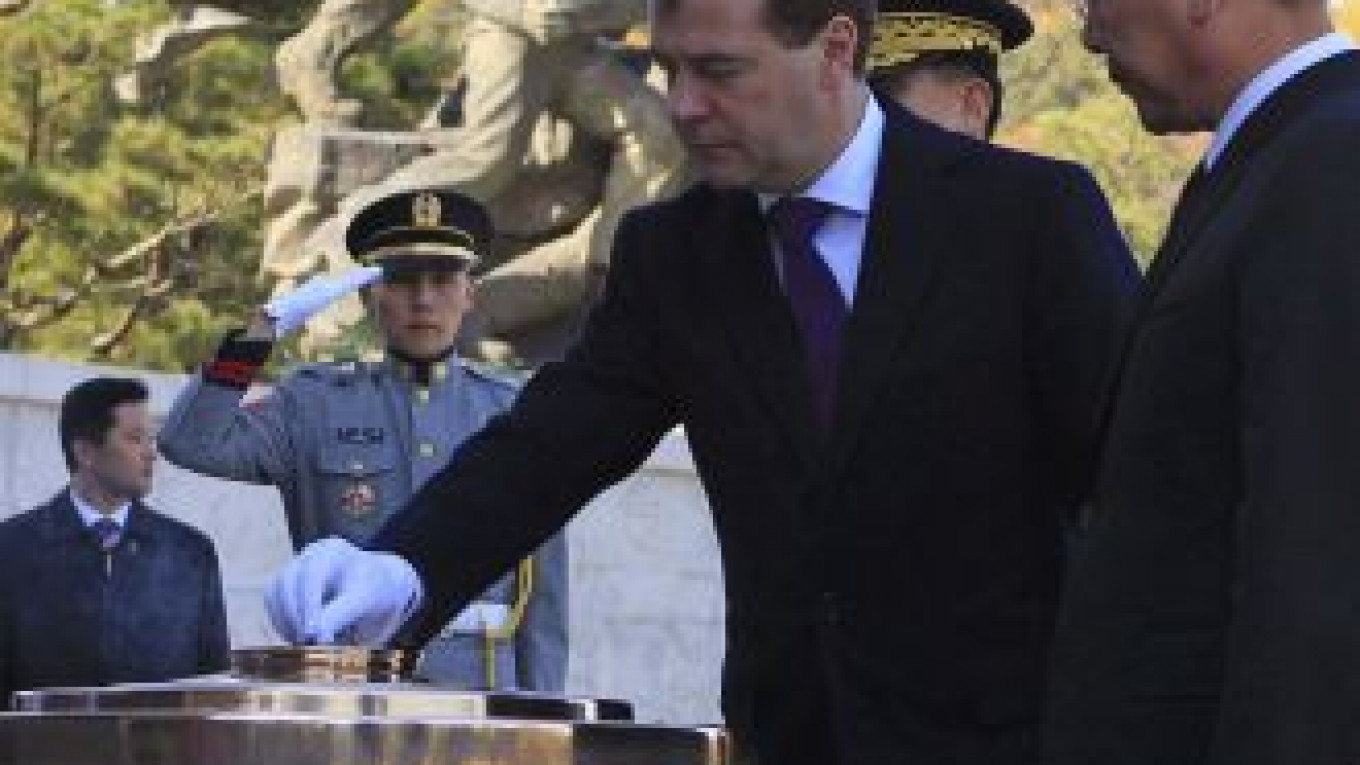SEOUL, South Korea — President Dmitry Medvedev said Wednesday that dialogue remains the only option for ending North Korea's nuclear weapons program as Pyongyang accused South Korea and the United States of blocking the stalled talks.
"As room for conflict remains in Northeast Asia and Asia Pacific region, I believe that countries have no choice but to hold dialogue and cooperate," Medvedev said at a joint news conference with South Korean President Lee Myung-bak. "I believe there is no other option."
A statement said the two leaders agreed to cooperate to revive the talks, which brought together the two Koreas, the United States, China, Japan and Russia.
North Korea pulled out of the talks last year to protest international condemnation of a long-range rocket launch seen as a test of its missile technology.
North Korea has recently shown willingness to rejoin the negotiations. But at the same time, it has continued to blame its chief foes, the United States and South Korea, for the stalemate.
Pyongyang says if the two countries are serious about resuming negotiations they should stop their military drills that it claims pose a nuclear threat.
The drills are in response to the sinking of a South Korean warship in March. A multinational investigation led by Seoul concluded that a torpedo fired by a North Korean submarine sank the 1,200-ton warship. North Korea has denied involvement in the sinking, which killed 46 South Korean sailors.
"The six-nation talks would be naturally resumed" if South Korea and the U.S. stop interfering, North Korea's main Rodong Sinmun newspaper said. The commentary was carried by the country's official Korean Central News Agency.
North Korea carried out two nuclear tests in 2006 and in 2009 in the country's northeastern area, drawing international sanctions each time.
UN Secretary-General Ban Ki-moon, who like Medvedev is in Seoul for the Group of 20 summit this week, urged North Korea to rejoin the nuclear talks.
"We expect that they will return to six-party talks and cooperate fully in realizing a denuclearized Korean Peninsula," Ban, a former South Korean foreign minister, told reporters.
A Message from The Moscow Times:
Dear readers,
We are facing unprecedented challenges. Russia's Prosecutor General's Office has designated The Moscow Times as an "undesirable" organization, criminalizing our work and putting our staff at risk of prosecution. This follows our earlier unjust labeling as a "foreign agent."
These actions are direct attempts to silence independent journalism in Russia. The authorities claim our work "discredits the decisions of the Russian leadership." We see things differently: we strive to provide accurate, unbiased reporting on Russia.
We, the journalists of The Moscow Times, refuse to be silenced. But to continue our work, we need your help.
Your support, no matter how small, makes a world of difference. If you can, please support us monthly starting from just $2. It's quick to set up, and every contribution makes a significant impact.
By supporting The Moscow Times, you're defending open, independent journalism in the face of repression. Thank you for standing with us.
Remind me later.






